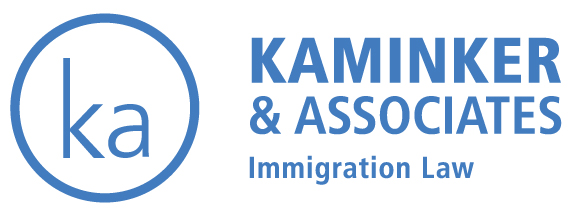Don’t Get Stopped At The Border – 5 Common Reasons Professionals Have Issues Coming to Work In Canada
Crossing into Canada for work is different than crossing for tourism. While many people take it for granted that they can work internationally, the truth is that foreign workers have responsibilities when entering Canada to work, regardless of how long they intend to be in the country. In the end, your ability to enter is determined on a case by case basis and is based on the information you provide to the border agent.
However, with the right documentation and the assistance of a licensed immigration lawyer, you can make your entry into Canada as easy as possible and get to work without any delays or difficulties. Here are five of the most common reasons we see professionals stopped or turned away from the Canadian border.
Lack of Preparation
This is one of the biggest reasons people have difficulties when crossing the border. If you are coming to Canada for work, you need the right supporting documentation and other information before arriving at the port of entry. For example, you may require a job offer letter, a contract, and a positive Labour Market Impact Assessment (LMIA) from your employer.
For Visa Exempt countries, you can often get a work permit at the port of entry. However, this is not true for all countries, so you should understand what you need before arriving. Lacking these documents may result in you being held for secondary questioning, or denied entry altogether. Both you, and the company you are working for, need to be prepared in advance of when you intend to start working in Canada.
Lying
There’s a belief among some people that they can say they are entering the country for tourism reasons even when they intend to work. The problem with this is that Canadian Border Agents are trained to detect this type of deception, and getting caught can have serious long-term consequences. Not only will you likely be denied entry immediately, you may face penalties that ban you from entering the country in the future.
If you say you’re going for a vacation but your bags are filled with marketing materials, demo products, business cards, and a suit, there’s a good chance you’ll be discovered and turned back. Instead of taking this risk, it is much better to go through the proper immigration processes.
Criminal Conviction Such as a DUI
Canada has extremely strict rules surrounding previous criminal convictions. One of the most common we see with professionals is a DUI from many years ago. Even if you have crossed the border since, all it takes is one agent to dig further into your information to discover the conviction and deem you inadmissible.
However, having a criminal conviction does not necessarily mean you cannot enter Canada. By working with a Canadian immigration lawyer, you can apply for a Temporary Resident Permit and a Criminal Rehabilitation Application ahead of time in order to be admitted. In these cases, it’s always best to disclose the offense in advance so that you can be prepared before you intend to work in Canada.
Medical Inadmissibility
Canada has specific rules regarding medical inadmissibility that you should be aware of before arriving to work in Canada. These rules are in place to protect the Canadian health care system from abuse or excessive expense. The Government of Canada defines the criteria for medical inadmissibility as anyone who might reasonably be expected to cause excessive demand on health or social services.
This only impacted about 1,000 applicants in 2017, and the threshold for what constitutes excessive demand was raised in 2018, but it is still something to be aware of when looking to work in Canada.
Participating in the Cannabis Industry
A growing concern for foreign workers is the changes to the Canadian cannabis laws which will make recreational cannabis use legal. There are a number of companies looking to capitalize on this new market and many are looking for skilled workers, partnerships, suppliers, or customers. However, this causes major issues at the border.
The US, in particular, considers cannabis a Schedule I substance at the federal level, meaning it is a federal crime for US citizens to participate in the industry. Crossing in to Canada may not be a problem, but crossing back into the US could have serious consequences even in states where recreational marijuana use is legal. For anyone who is a part of the cannabis industry, directly or indirectly, it is important to consult an immigration lawyer before crossing any borders, whether for work or for tourism.
Don’t Be Turned Away
With the right preparation and the assistance of an immigration lawyer, traveling to Canada for work can be a fairly seamless process. The problems arise when professionals are not prepared or do not disclose all of the information they need to when arriving.
Getting turned away can have serious consequences both personally and professionally, so it’s always better to go through the proper processes and enter Canada with all of the required permits to ensure you can do the work you’re coming to do.
Hart Kaminker, is Principal, Kaminker & Associates Immigration Law in Toronto, Ontario, Canada




Leave a Reply